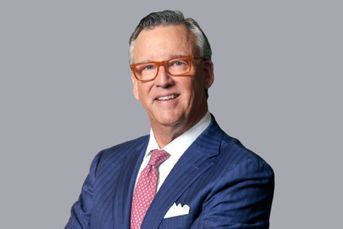Bloomberg op-ed gets fast rebuke from 401(k) defenders

A column this week by former AQR managing director Aaron Brown questioned the benefits of 401(k)s
A Bloomberg opinion piece this week that was critical of the 401(k) system has prompted a big response from the financial advice world.
On July 21, a column by former AQR head of financial markets research Aaron Brown called out 401(k)s for no longer having much benefit for savers, largely due to tax changes and fees charged by investment and service providers.
That assessment is faulty, 401(k) proponents responded, raising issues with the facts and assumptions cited in the opinion piece.
But Brown’s article has received a lot of attention in general — and it could discourage some people from saving for retirement in 401(k)s, respondents said.
“This was a major financial publication, and the article has, sadly, gone somewhat viral,” said Jeffrey Levine, director of advanced planning at Buckingham Wealth Management, in an email. “I’ve already spoken with and/or heard from many advisors who’ve shared that they were forwarded the article by clients and/or other connections, who questioned whether they should be following the author’s advice.”
Nevin Adams, chief content officer for the American Retirement Association, an industry and lobbying group, on Friday said he was preparing an article in response.
“This is just ridiculous. There is a part of me that really hates giving oxygen to this, because it’s just so ignorant,” Adams said.
Levine posted a video response to the column on Twitter where he cited cited his concerns.
“Given the article’s wide distribution, it’s hard to imagine a scenario where it doesn’t cause at least one person to make a poor decision that results in financial harm,” Levine said in the email. “It’s hard enough to get people to think long-term and save for retirement when they are armed with good information. It’s even more difficult when they’re operating on faulty assumptions.”
In his column, Brown cited a change the median marginal federal income tax rate, at 43% in 1980 to 12%, currently. He also pointed to a change in the capital gains tax rate, going from 28% to 0%, as well as a change in the likely retirement bracket tax rate for the family, at 15% versus 12%. Further, interest rates are near zero today, compared with about 15% in 1980, he wrote.
“Making some reasonable assumptions about a worker with 30 years to retirement, the 1980 version of the 401(k) tax deferral was equivalent to an additional investment return of 9.2% per year, an extraordinary incentive to save for retirement, even without an employer match,” he wrote in the Bloomberg column. “Using today’s numbers the benefit comes out to 0.6%, considerably less than the 1% to 2% in fees investors pay in typical 401(k) plans.”
Levine pointed to different figures for the median marginal tax rate, of between 17% and 24% for a family of four in 1980.
In a response to InvestmentNews, Brown wrote that “people are quibbling over exactly what typical case to use to illustrate the changes.”
“The important point, which no one denies, is that marginal federal income tax rates for median and below wage workers, and inflation expectations, have declined very significantly since 1980, and the tax advantage of 401(k) tax deferrals have declined as well.”
Even with different assumptions for changes in 401(k) fees and tax rates, his conclusions hold, he said. Brown’s figures for median income came from IRS data, which is more reliable than Census data, he said. He also got the marginal capital gains tax rates from the IRS, he noted.
“Looking at the tax code and general income statistics is a less reliable way to get at the rates,” he said. “But even Jeffrey Levine’s lower rates, it still follows that most of the tax deferral of the 401(k) for median and below wage workers has gone away.”
Brown also pointed to fees of as much as 350 basis points for a 401(k) in 1980, which he noted “is the highest charge I have ever seen.” Costs have come down considerably since, he said.
To improve the plans, he recommended lowering taxes on 401(k) income and allowing workers to roll assets out of such plans and into IRAs at any time.
“I accept that most 401(k) plans are very good deals — if you are older, above median wage, have a good employer match or a low-fee plan with good options — it’s a great deal,” he said. “But I think Congress should write laws to protect the most vulnerable workers, not the ones who are earning enough to take care of retirement themselves, or who have good employers doing it for them.”
One of the criticisms about the column is its focus on taxes in general.
“My decision to put money in a 401(k) might be predicated on my tax situation, but that’s not normal — that’s not average,” Adams said, of the perspective of a risk manager. “If you’ve got access to a plan at work, you’re 12 times more likely to save for retirement.”
That behavioral finance aspect of 401(k)s is important, and without it, many people simply would not save, he said.
Further, the Bloomberg column did not properly consider the role of Roth 401(k)s, which can have a tax benefit for workers who will end up in higher income tax brackets later in life, he noted. About two-thirds of 401(k) plan sponsors offer Roth 401(k)s, and many plans also allow Roth conversions, he said.
He compared the criticism of 401(k)s to attempts by some members of Congress to change the tax treatment of the savings vehicles.
“It reminds all of us that these plans, their benefits, are under a constant attack,” he said.
Learn more about reprints and licensing for this article.








